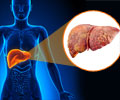The immune system tends to wrongly identify its 'enemy' in autoimmune diseases,and produces antibodies that attack the patients's own cells.

‘In people suffering from APS, antibodies called "anti-Β2GP1" attach themselves to elements found on the surface of certain cells, particularly those of the blood vessels and placenta.’





Although the prevalence of APS is very difficult to assess, it is likely to affect around 0.5% of the general population. Diagnosing the disease is a complicated affair: the test currently used has a number of problems in terms of variability, specificity and sensitivity. This situation, however, is set to change: researchers at the University of Geneva (UNIGE), Switzerland, and the Geneva University Hospitals (HUG) have succeeded in identifying the exact spot where the anti-phospholipid antibodies attach themselves. This means a more accurate and standardized diagnostic test can now be devised-- an undeniable improvement for patients. These results can be read in the journal Haematologica.
They bind themselves to receptors located on the cell membrane, generating a signal that produces the pro-inflammatory and pro-thrombotic factors that cause vascular accidents.
By identifying the exact location where these antibodies bind, the research team at UNIGE and HUG have been able to clarify how they function. Karim Brandt, a researcher at the UNIGE Faculty of medicine, explains the importance of this discovery: "The current diagnostic tests use the entire protein, which reduces its specificity and leads to standardization issues.Consequently, two tests are required at an interval of 12 weeks after a thrombotic episode or following one or more miscarriages. Our new test specifically targets this pathogenic antibody, with rapid and more accurate results."
An antibody with a rather special behaviour
Advertisement
Better diagnosis and better treatment
Advertisement
For the time being, the diagnostic test needs to be optimized for prototypes to be developed. To ensure its validity, the researchers will reanalyze hundreds of samples already tested with the old method and compare results.
Source-Eurekalert















